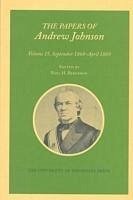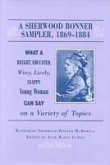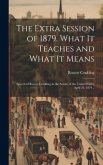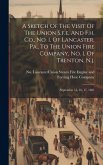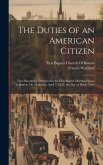This volume encompasses the last six months of Andrew Johnson's presidency (September 1868-February 1869) and March and April of 1869. During this time Johnson moved from being a considerably diminished president to becoming an ex-president. But by April he sought to rejuvenate his political career by undertaking a speaking tour across Tennessee. Despite being a "president in limbo" in the last months of his term, Johnson remained surprisingly active. Requests and nominations for presidential patronage did not slow down, but Johnson enjoyed only limited success in securing Senate confirmation of his appointments. Yet the patronage game continued to be played right up to the end of his term. Although Horace Greeley feared Johnson might "do something to make us all d -- d mad before November, " the President's involvement in the presidential campaign was limited to a plea with Horatio Seymour to become an active campaigner. But even a more engaged Democratic candidate could not have thwarted the Republican ticket headed by General Grant. One holdover problem from the summer months was the whiskey frauds investigation in New York City. It continued through the end of 1868 with various twists and turns. The Johnson administration had to defend its own investigators, who seemed as unscrupulous as those they investigated. The ultimate purpose of the inquiry was to replace Internal Revenue Commissioner Edward Rollins, but Rollins remained in office. In December, Johnson submitted his fourth and final Annual Message to Congress. Not surprisingly, he attacked the various Reconstruction acts. Yet he also focused on the national debt and urged a scheme that would enable bondholders to bepaid off in less than seventeen years. Republican leaders in Congress, however, strongly opposed this proposal. That same month the president also issued his fourth and final Amnesty Proclamation. Its terms embraced everyone who had not already been accommodated by earlier p
